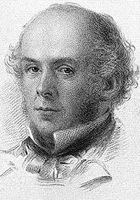Say Not The Struggle Naught Availeth Poem by Arthur Hugh Clough
Say Not The Struggle Naught Availeth
SAY not the struggle naught availeth,
The labour and the wounds are vain,
The enemy faints not, nor faileth,
And as things have been they remain.
If hopes were dupes, fears may be liars;
It may be, in yon smoke conceal'd,
Your comrades chase e'en now the fliers,
And, but for you, possess the field.
For while the tired waves, vainly breaking,
Seem here no painful inch to gain,
Far back, through creeks and inlets making,
Comes silent, flooding in, the main.
And not by eastern windows only,
When daylight comes, comes in the light;
In front the sun climbs slow, how slowly!
But westward, look, the land is bright!
Should those as corpses ever rise again You sir Clough will be god among them
i like this poem coz its sound good, but honestly speaking its hard for me to get the maining of this poem hope someone can explain it to me. just message me if someone can explain this poem to me. thx very much and GOD bless us all.
That was a rousing cry to battle- - whether with life's normal troubles or with comrades on war's battlefield.. I think I am a bit craven however- -I do not think I see myself gladly flinging myself in bullets' paths. Well, to save my children, of course I would. But to win a war the politicians have gotten us into? I don't think I am made of exalted bravery.... but this poem makes me wish I were.
The enemy faints not! ! Thanks for sharing this poem with us.
Here's my paraphrase, for what it's worth. Don’t say that the long struggle [against tyranny and injustice] is of no avail; don’t say that all your efforts, and all the injuries you’ve sustained, were in vain. Don’t say that the enemy’s just as strong as ever; and don’t say that nothing’s changed for the better! If the things you hoped for haven’t happened, well, maybe the things you’re scared of won’t happen either. Perhaps over there on the battlefield, now obscured by smoke, your comrades are chasing the enemy away, and all they need to ensure victory is that you go and join them. Look! Those waves don’t seem to be making much headway, even though the tide’s supposedly coming in. But far behind you, unseen creeks and inlets are swelling with incoming waters: the sea really is on the move after all! Look! The eastern window you’re sitting at isn’t the only place affected by sunrise; from there, yes, it’s true, the sun hardly seems to moving up the sky at all— but cross the room and look through a westward-facing casement: see how the whole landscape’s already flooded with light! Clough had just personally witnessed how Garibaldi's brave attempt to help preserve a new Roman Republic had been foiled when the forces of reaction (led, ironically enough, by the French) had successfully brought the Siege of Rome to an end in 1848. He was trying to cheer up fellow-supporters of reform and of independence for Italy. They were all feeling pretty downhearted. That's the historical context. But it could have fitted Democrats in the USA while Bush and the Neo-conservatives had the upper hand; or the Left in France today; or many other similar situations. [I'm not sure whether the dud end-rhyme (only / slowly) in Clough's final stanza is just clumsiness or a daring use of half-rhyme. I'm puzzled by the total absence of any mention of this in any of his commentators' notes to the poem. It doesn't really spoil the poem at all; but, once you've noticed it, it niggles away at the back of your mind.]
I like this appreciation Kevin, it helps to access the archaic language. I love this poem, “Be brave”, There is a word placement of genius in the last line; “look...”
This poem has not been translated into any other language yet.
I would like to translate this poem
In this poem Clough is saying that although we may not notice any improvement in our condition or in the struggle for a better world, perhaps, change is happening - it's just that we can't see it yet. The first image is of a battlefield during a battle that we seem to be losing, or at least not winning, but perhaps we cannot see through the smoke that our comrades are winning and only we have made no progress. 'If hopes were dupes, fears may be liars' = maybe our hopes were illusions but our fears may be just as unreal. The second image is of the sea, of which we notice only 'tired waves' that make no progress, but elsewhere the tide is coming in, unstoppable, relentless. The final image is of the sun at dawn, which seems to rise so slowly as we look at it through eastern windows, but behind us the land is already bright, the day has already come! So the message is: don't worry, change happens, and yes, we can!